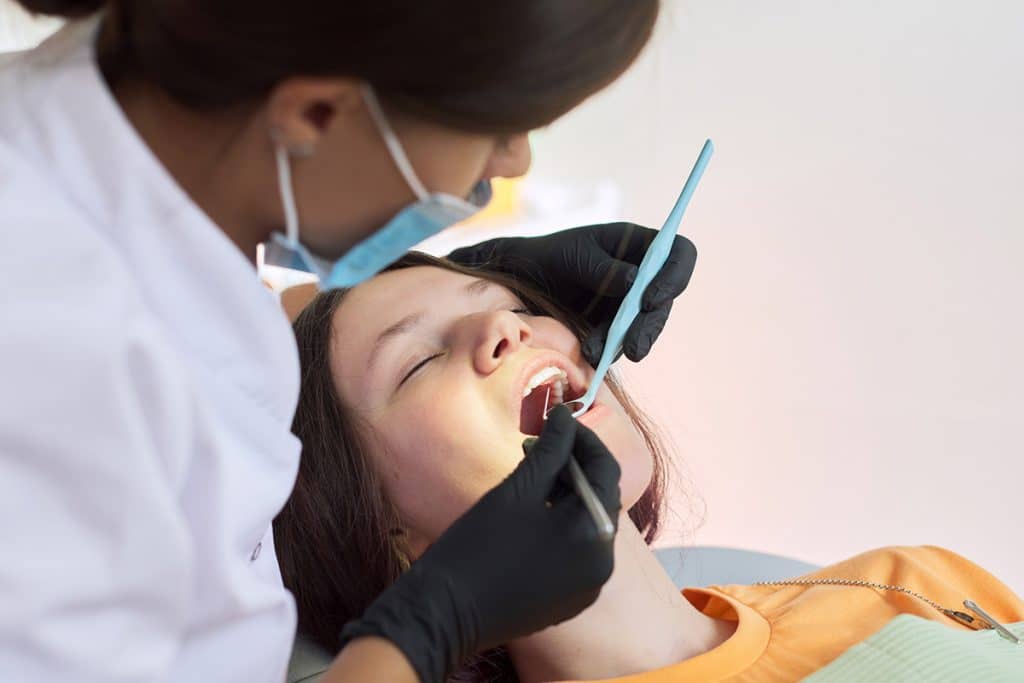What Type of Anesthesia is Available for My Oral Surgery?

Oral surgery is the general term that encompasses a wide variety of procedures. Anesthesia is available to make surgical procedures more comfortable for patients. The type of anesthesia used depends on patient factors and the complexity of the procedure.
If you are in need of a surgical procedure, you may be wondering what anesthesia options are available. Here’s an overview of the different types of anesthesia used for oral surgery.
Types of Anesthesia
There are a few different types of anesthesia used for oral surgery. Some can be used together for best results.
- Local anesthesia. Local anesthesia is a medication applied directly to the treatment area that numbs the nerves so that you feel no pain. Lidocaine is the most common medication that is used for local anesthesia, but there are others that may be used in specific cases.
- Nitrous oxide. Nitrous oxide is administered through a mask worn over your nose. As you breathe in through your nose the nitrous oxide will take effect, usually in a matter of minutes. It provides a calm, relaxed feeling that can make your arms and legs seem heavy. Some patients experience a tingling sensation in their fingers and toes. Nitrous oxide wears off in just a few minutes of breathing regular room air.
- IV sedation. IV sedation is administered intravenously and provides a deeper level of sedation. Your level of consciousness can be carefully controlled by your oral surgeon, ranging from being awake but relaxed, to being completely unaware of your surroundings. You may have no memory of the procedure after IV sedation.
- General anesthesia. General anesthesia renders you completely unconscious and unarousable.. This is the deepest level of sedation used for oral surgery. It is the same type of anesthesia used in hospitals for other surgical procedures.
What Type of Anesthesia Will I Have?
The type of anesthesia used for your procedure will depend on a variety of factors:
- Invasiveness. Some oral surgeries are more invasive than others. A minimally invasive procedure may only require local anesthesia, but a more invasive procedure may require IV sedation or general anesthesia.
- Complexity. The complexity of the procedure will affect how long it takes. If your procedure is particularly lengthy, sedation can make it seem much shorter.
- Your comfort level. How comfortable are you with oral procedures? If you are anxious or nervous about your oral surgery, sedation is a helpful tool to relieve your anxiety.
Frequently Asked Questions About Anesthesia
Is anesthesia safe?
Dr. Lucca and our team are highly qualified and certified to administer anesthesia and in a carefully controlled environment. Anesthesia is a safe and effective way for patients to receive oral surgery. A complete medical history and any necessary data is gathered before the administration of any type of anesthesia.
Can I drive after anesthesia?
Whether or not you can drive after having anesthesia depends on the type. Local anesthesia and nitrous oxide allow you to drive after the procedure as long as you feel up to it. IV sedation and general anesthesia will require you to have someone you trust to drive you home after your appointment.
Lucca Oral & Facial Surgery Provides Fear Relief
We are committed to providing comfortable, relaxing care for our patients. You should not have to be afraid to undergo oral surgery, which is why we provide a range of anesthesia options that are designed to provide fear relief. Please discuss your fears and concerns with us so that we can create a plan to make your experience as positive as possible.
To learn more, call 617-300-0345 or contact us today to schedule an appointment.






